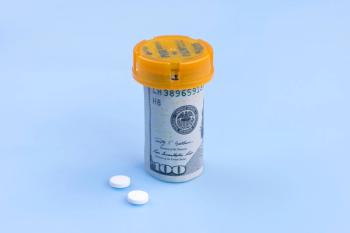
A Primer on CBD Regulation
Understanding the regulatory landscape is key to responsibly integrating CBD into your pharmacy.
With all of the legal complexities involved in the CBD industry, pharmacists must be equipped with the knowledge and guidance to effectively and responsibly integrate CBD into their pharmacy.
During a webinar co-hosted by Drug Topics® and E-Alternative Solutions (EAS), Chris Howard, vice president of general counsel and chief compliance officer for EAS, gave an overview of the past, present, and future of CBD regulation.
According to Howard, federal regulation of CBD started back in 2014 with the Farm Bill, which created a forum for hemp development to study growth, cultivation, and marketing. The bill limited tetrahydrocannabinol (THC) content to 0.3% - a rule that still stands - and allowed states the option to develop research programs for CBD.
Upon the arrival of the 2018 Farm Bill , the CBD industry again underwent significant changes. This bill expanded the definition of hemp and included derivatives, extracts, and cannabinoids. “Most significantly, it removed hemp from the Controlled Substances Act, thus making it more free to market and sell CBD products than it was prior to that,” Howard said.
In 2019, the United States Department of Agriculture (USDA), which is the primary overseer of the CBD space, issued an interim final rule effective through November 1, 2021.
The rule regulates the following:
- Licensing
- Land used for production
- THC sampling and testing
- Disposal of noncompliant plants
- Inspections
- Reporting USDA
- State and Tribal plan approvement
Howard noted that, because hemp was removed from the Controlled Substances Act through the 2018 Farm Bill, the United States Drug Enforcement Administration (DEA) is now largely absent from the CBD space from a regulatory perspective. However, it does continue to monitor THC levels for enforcement.
“DEA could step in if someone was actively marketing a product allegedly containing CBD that had THC thresholds above 0.3%,” Howard said.
However, the FDA has acknowledged that it is exploring pathways for regulation in the industry, according to Howard. In 2019, former FDA Commissioner Scott Gottlieb, MD, made a statement to ensure that the agency is looking at ways to establish regulatory guidance for lawful marketing. Gottlieb also provided a position on different form factors, indicating that although topical CBD products are “generally fine” and not subject to much scrutiny, ingestible products are not.
At the time, Gottlieb noted that the FDA would establish a working group and prioritize enforcement. The agency has not since prioritized enforcing against companies for simply making ingestible CBD products; “rather, they are enforcing against health companies making health claims or therapeutic claims,” Howard explained. Companies are not allowed to market their products as useful for the diagnosis, cure, mitigation, treatment, or prevention of diseases. To date, the FDA has initiated enforcement actions against CBD products claiming:
- Pain relief
- Anti-inflammatory effects
- Sleep promotion
- Treating neurological/psychological disorders
- Treating diseases such as cancer, Crohn disease, arthritis, cardiovascular disease, and infections
In July 2020, the agency issued a draft guidance on CBD enforcement policy to the Office of Management and Budget; however, there is no date set for publication of the document. In September 2020, a law, named HR8179, was introduced and referred to the Energy and Commerce Committee that would allow for the use of CBD as a dietary ingredient in a dietary supplement, providing that it meets certain requirements.
Although neither of those policies have advanced, Howard indicated that the CBD category continues to gain attention and scrutiny from a regulatory perspective.
Then, what will the future of FDA enforcement look like? Howard speculates enforcement will be similar to the regulation of e-cigarettes, including requirements for testing. “Down the road, FDA will have best practices and will make sure [there is] a clear pathway to bring these products to market,” he said.
Howard also provided advice on what to look for in reputable CBD brands. For one, Howard recommends checking brand webpages and marketing materials to ensure that companies aren’t making health claims or unsupported statements about their products.
“You [also] want to check to see if this company that you’re considering partnering with has received a warning letter,” Howard said. “That means they’ve disregarded the guidance from the FDA.” You can search by brand or distributor on the FDA warning letter website and review the FDA CBD page to check which companies have received violations.
Moreover, you want to investigate the brand’s quality. For example, you should look into:
- Product testing: Do they conduct testing on their own, or have a third-party involved?
- CBD content: How do they determine the CBD content in their product?
- Certificates of Analysis (COA): Do they provide a COA that describes everything contained in their products?
“You can do this due diligence on your own,” Howard said.
Reference
- E-Alternative Solutions, Drug Topics. Integrate CBD Into Your Pharmacy Responsibly and Economically. March 3, 2021. Accessed March 5, 2021.
https://globalmeet.webcasts.com/starthere.jsp?ei=1427551&tp_key=031c282bad
Newsletter
Pharmacy practice is always changing. Stay ahead of the curve with the Drug Topics newsletter and get the latest drug information, industry trends, and patient care tips.























